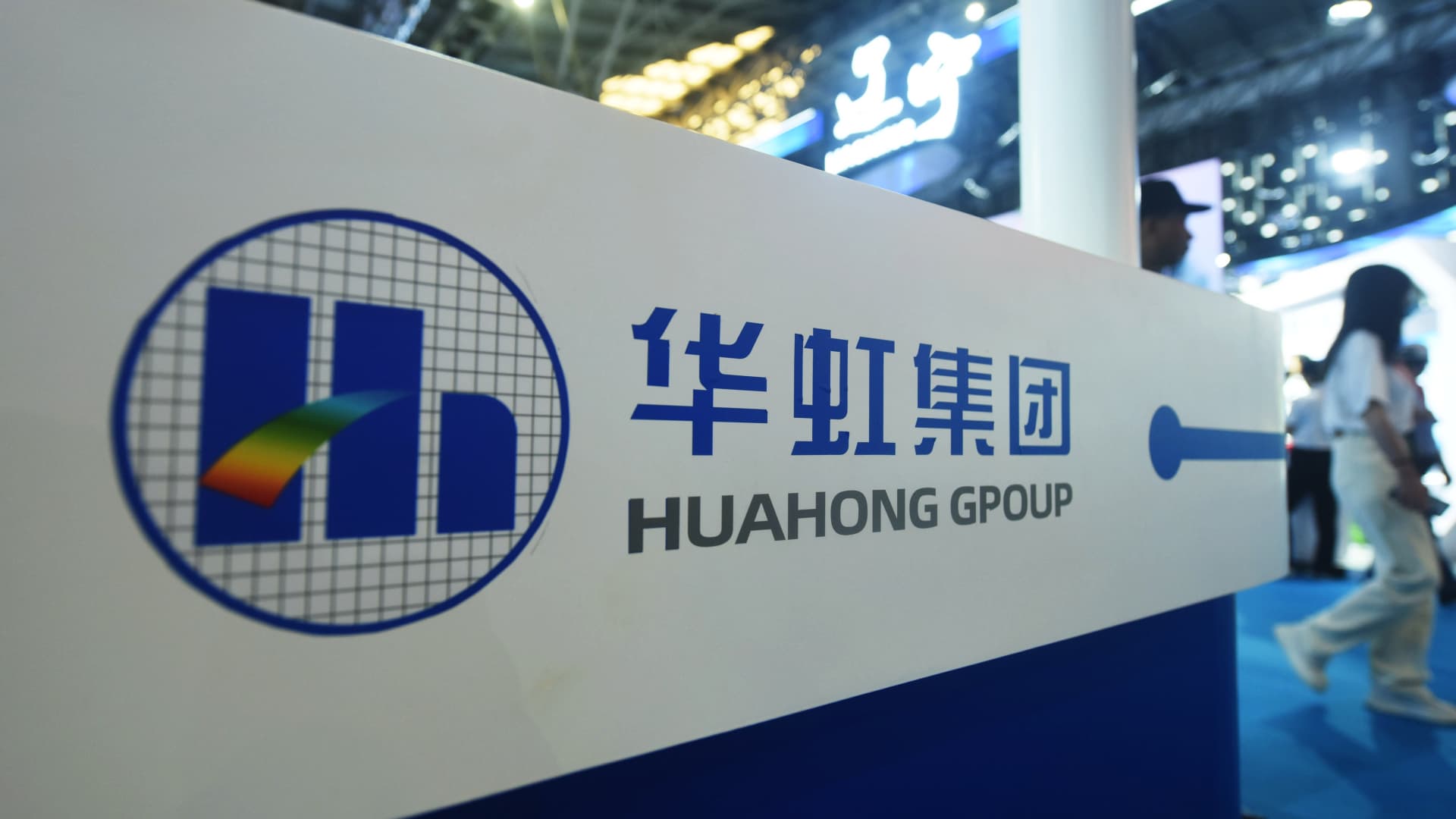Shares of Chinese chipmaker Hua Hong jumped 13% at the open during its market debut on Shanghai Stock Exchange’s Star Market on Monday, but quickly gave up gains.
Hua Hong is China’s second-largest chip foundry after Semiconductor Manufacturing International Corp. (SMIC).
Shares of the chipmaker opened on the Nasdaq-style Star Market at 58.88 Chinese yuan, according to Refinitiv data. That’s a 13.2% jump from its offer price of 52 Chinese yuan ($7.23).
The Shanghai-listed shares have since pared gains and were trading lower at 53.99 Chinese yuan on Monday afternoon.
The company, which produces semiconductors using advanced wafer process technologies, previously said that it will sell 407.75 million shares at a price of 52 Chinese yuan per share, according to a filing.
Hua Hong’s Shanghai debut raised 21.2 billion yuan ($2.95 billion) — in what was the largest IPO in mainland China so far this year, according to EY’s global IPO report.
Chips produced by the Shanghai-based company are used in industries spanning consumer electronics, communications, computing, industrial and automotive.
Hua Hong has been listed in the Hong Kong exchange since 2014. Its Hong Kong-listed shares plummeted as much as 7.4% on Monday.
Phelix Lee, equity analyst at Morningstar Asia, said the size of Hua Hong’s IPO is not significant.
“I don’t think it’s a big deal in the grand scheme of things as the deal size is smaller than SMIC’s IPO 2 or 3 years ago,” said Lee. “The trend of encouraging local chipmakers and other semi-related companies to list domestically is intact and we view there are more semiconductor IPOs to come.”
SMIC raised 46.28 billion yuan ($6.62 billion) during its IPO in 2020.
Hua Hong’s listing comes as Chinese companies seek to raise capital to ramp up on advanced chip tech as China seeks self reliance on advanced chip tech amid Washington’s efforts to cut Beijing off from advanced chip tech.
Hua Hong is the latest semiconductor firm to launch an initial public offering in mainland China this year.
Semiconductor Manufacturing Electronics (Shaoxing) Corporation listed on the Star Market in May, while Nexchip Semiconductor debuted there the same month.
China has poured more than 1 trillion Chinese yuan ($140 billion) into its chip industry, according to a Reuters report. Domestic chip makers already benefit from government subsidies and state-backed research projects.
